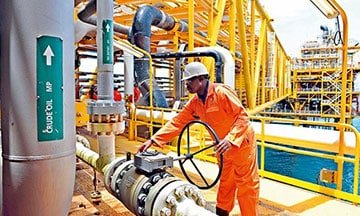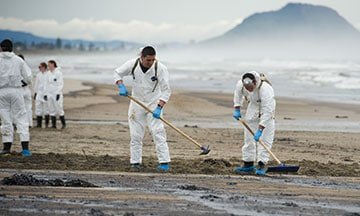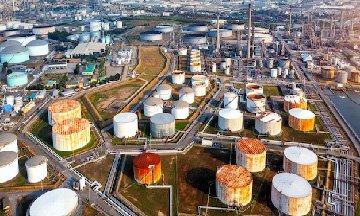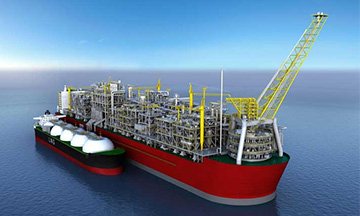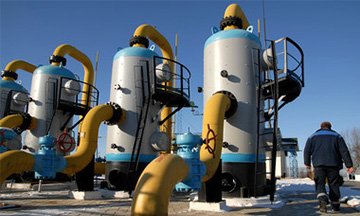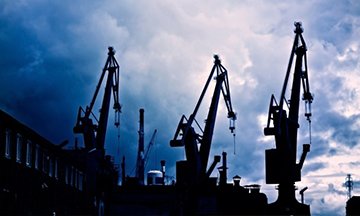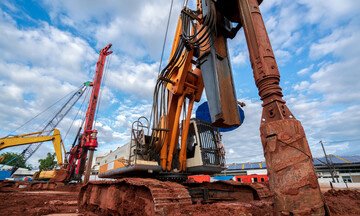LNG Plant Operator Training Course
| Date | Venue | Duration | Fees | |
|---|---|---|---|---|
| 22 Apr - 26 Apr, 2024 | Singapore | 5 Days | $5695 | Register |
| 29 Apr - 03 May, 2024 | Kuala Lumpur | 5 Days | $5350 | Register |
| 08 Jul - 19 Jul, 2024 | Kampala | 10 Days | $9150 | Register |
| 19 Aug - 30 Aug, 2024 | Nairobi | 10 Days | $9150 | Register |
| 21 Oct - 25 Oct, 2024 | Mauritius | 5 Days | $5350 | Register |
| 18 Nov - 22 Nov, 2024 | Nairobi | 5 Days | $4950 | Register |
Course Overview
A liquified natural gas (LNG) plant is where the entire transformation from the gaseous to the liquid state takes place. This highly sensitive area is prone to many dangers and thus needs to be closely supervised to prevent hazards and damages to human life, property and the environment. Operations undertaken here are complex and should be managed by experts.
With advancement in technology and overall operations from time to time, plant operators need to undergo regular training and upskilling to help enhance plant processes and functions and ensure seamless and safe operations throughout.
This Zoe training course will empower you intricate details of LNG plant operations to independently manage all departments at an LNG plant.
This course will certify you capable of assuming and fulfilling higher roles and responsibilities within your organisation or any other organisation requiring such dynamic experience and expertise. Through this course, you will enhance your professional portfolio, which will invite further opportunities for career development.
Course Objectives
The primary objective of this training course is to empower professionals with—
- detailed knowledge and understanding of LNG plant operations
- the required skills and information to execute or oversee the execution of any process at an LNG plant
- the needed experience and confidence to guide other professionals on best practices to be followed at LNG plants
- the strategic and analytical skills to not just look at current trends and requirements but forecast future requirements as well as challenges and devise strategic plans accordingly
- the ability to contribute to organisational development through seamless operations and lesser risks
- the ability to contribute to employee health and safety through safety practices and guidelines
- knowledge of required standards and benchmarks of adherence for environmental safety and operational excellence
- the overall skill set and abilities to undertake higher roles and responsibilities within or outside your organisation, thus contributing to quicker career progression
Training Methodology
Training at Zoe Talent Solutions follows a mixed approach, with classroom sessions and practical assignments. The classroom sessions are delivered by experienced professionals from the relevant domain. The practical approach includes practice assignments, projects, active case study discussions, role-plays, etc. Trainees are also encouraged to share real-life experiences and issues faced at their workplace, in relation to the training topic, and the trainer discusses these in detail with the rest of the audience to link theory to practical challenges and scenarios.
This innovative approach to training was conceptualised by Zoe Talent Solutions and is called the Do–Review–Learn–Apply Model.
Organisational Benefits
With professionals undertaking this training course, their organisations will derive the following benefits:
- Trained and experienced professionals overseeing LNG plant operations
- Increased efficiency because of enhanced processes and leaner operations
- Better maintenance of machines and equipment, thereby increasing machine life
- Coordination and simulation of all processes across various departments at LNG plants
- Greater employee safety and environmental protection because of rigid practices and safety guidelines
- Reduced costs and increased profits because of leaner operations and increased machine life
- Regular training of other employees on best practices to be followed at LNG plants
- Better risk assessment and management, thereby increasing organisational credibility
- Organisation growth and development because of increased credibility and greater investments
- Application of advanced methods for operational excellence, thereby securing a competitive position for the organisation
- Adherence to all required standards and benchmarks of LNG plant operations
Personal Benefits
Professionals enrolling for this training course will derive the following benefits:
- Complete knowledge and information of end-to-end LNG plant operations
- Increased skill and confidence to troubleshoot any issue occurring across in plant operations
- Increased confidence and knowledge to train other professionals on best practices in LNG plant operations
- Enhanced perspective and strategic skills to predict risks and address them to prevent negative impact to the organisation
- Better skillset and capabilities to undertake higher roles and responsibilities within one’s organisation and beyond, thereby contributing to career progression
- Greater understanding and information of advanced techniques to enhance plant operations for increased efficiency and safety
- A sense of pride contributing to employee health and safety through robust safety guidelines
- Increased skill and ability to contribute to organisational growth and development through operational excellence
- Greater understanding and knowledge of required standards and benchmarks of operation
- Dynamic skillset and advanced capabilities to assume any role or multitask between several roles when required, in turn demonstrating one’s potential and talent
Who Should Attend?
- Engineers working on some process at LNG plants
- Managers and operators responsible for overseeing operations at LNG plants
- Senior management members of organisations responsible for strategic decision making with regard to enhancements to plant operations
- Compliance officials responsible for ensuring that plant operations are in compliance with all standards
- Legal advisors and consultants responsible for handling operation-related legal issues faced by organisations
- Quality checkers and policymakers responsible for framing and implementing guidelines across various departments at LNG plants
- Any other professional interested in knowing more about LNG plant operations
Course Outline
The course covers the following areas important to understand LNG plant operations:
Module 1 – Sectors in the LNG Value Chain
- Exploration and development
- Production
- Gas processing
- Liquefaction
- Transport
- Regasification
- Distribution and transport
- Sales and marketing
Module 2 – Types of LNG Storage Tanks
- Single containment
- Double containment
- Full containment
- Membrane
- In-ground
Module 3 – Types of Vaporisers
- Open rack
- Submerged combustion
- Intermediate fluid
- Ambient air
Module 4 – Gas Policy and Regulatory Framework
- National gas policy
- Gas law
- Gas master plan
Module 5 – Equipment Components of LNG Import and Regasification Terminals
- Unloading arms
- Cryogenic pipelines
- Storage tanks
- Low-pressure pumps
- Boil-off gas compressors and re-condensers
- High-pressure pumps
- Vaporisers
Module 6 – Success Factors of LNG Development
- Government support
- Safety focus
- Successful contracts
- Qualified contractors
Module 7 – Preparation for LNG Cargo Loading
- Cargo tank drying
- Hold space drying
- Cargo tank inerting
- Annular space (moss-type) inerting
- Inter-barrier spaces and insulation spaces (membrane-type) inerting
- Gassing up
- LNG supply for gassing up
- Requirement to purge with nitrogen
- Completion criteria
Module 8 – Ignited Leaks from LNG Tanks and Their Emergency Response
- LNG vapour leakage from barrier (membrane-type)
- Ignited leak from LNG tank (LNG carriers)
- LNG liquid leakage to primary barrier (membrane-type)
- Water leakage to barrier (membrane-type)
- LNG liquid leakage to drip pan (moss-type)
- Water leakage to cargo hold space (moss-type)
- Liquified gas leakage into hold spaces
Module 9 – Procedures for Transfer Operations
- Conditions and requirements
- Safety during bunkering
- Personnel education and training
- Communication systems
- Pre-bunkering operations
- Operations during bunkering
- Operations post bunkering
Module 10 – Major LNG Hazards
- Flashfire
- Pool fire
- Jet fire
- Explosion
- Asphyxia
- Rapid-phase transformation
- Brittle fracture and cryogenic burns
- Trapped LNG
Module 11 – Aspects of Maintenance
- System state mode
- Pressure
- Temperature
- Flow
- Electrical status, current, voltage, intrinsic components
- Gas detection
- Structural integrity
- Safety information check
- Equipment/plan surrounding check
Module 12 – Environmental Impacts of LNG Facilities
- Possible threats to aquatic environments
- Impact on marine environments
- Hazardous material emission
